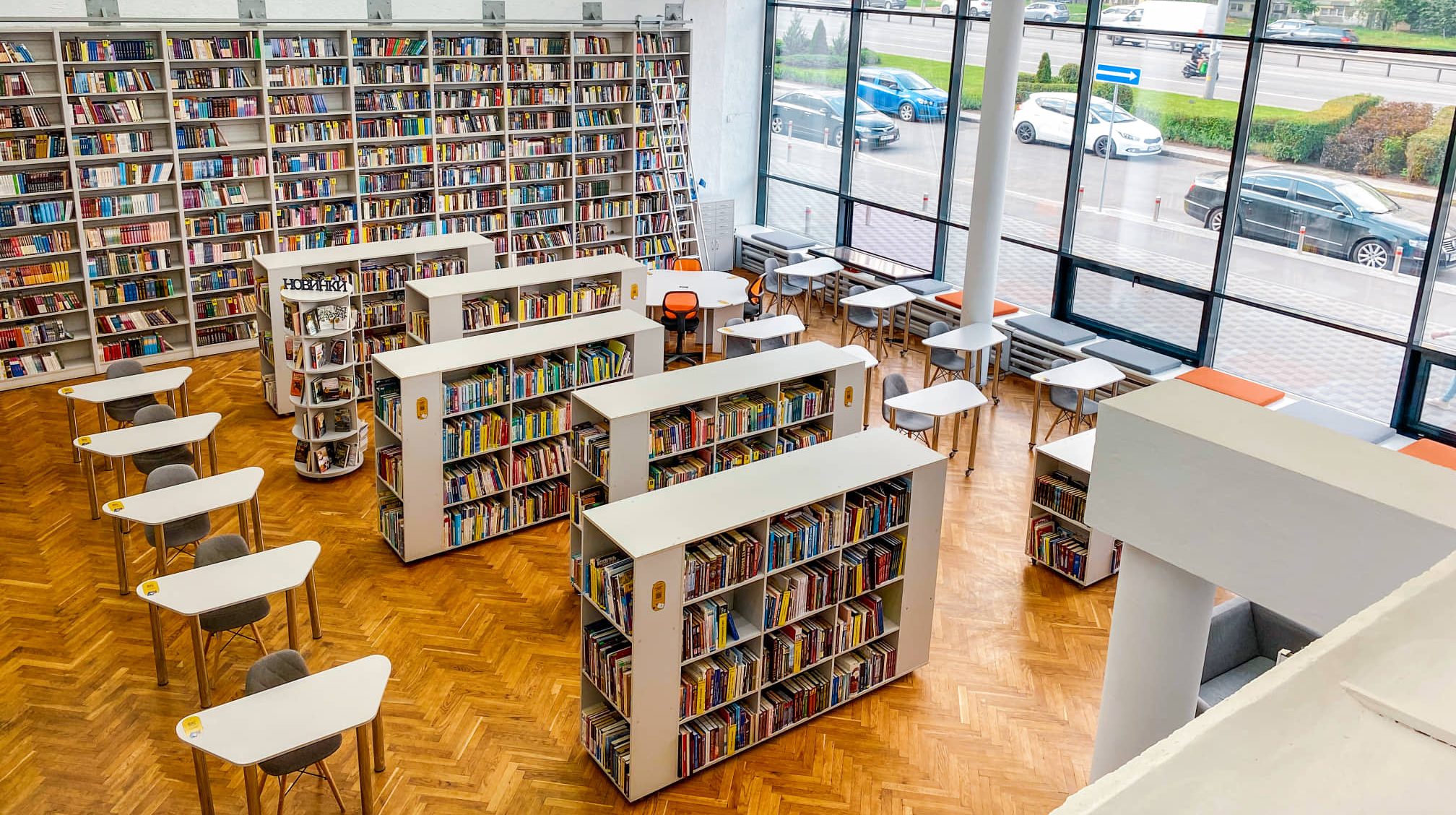“The importance of libraries as social infrastructure is not qualitatively understood by either national or regional elites. Even in the air, a non -expedited consensus is felt – it will be, they will die?”, – WRITE: www.pravda.com.ua
The importance of libraries as social infrastructure is not qualitatively understood by either national or regional elites. Even in the air, a non -expedited consensus is felt – it will be, they will die? This is evidenced by the declarative nature of all strategies, the lack of plans and resources for their implementation. This is evidenced by the facts of uncontrolled closure of libraries in many communities.
The World Economic Forum attributes the erosion of social cohesion to long -term risks for the world. The Western community has long reinforced the roles of public libraries and views them as a basic social infrastructure that strengthens links, reduces isolation, and increases community resilience. The idea was popularized by the sociologist, urbanist, author of the book “Places for People” by Eric Clinnberg. “The future of democracies is kept not only on values, but also in common spaces – libraries, parks, communal centers.” Common spaces sew society, intensify intergroup, intercostal contacts.
All the problems of the library system have been the subject of many articles, analytical notes and discussions. But let’s see what Schwetsky researcher Emanuel Carlsson, the author of the dissertation “Ukrainian libraries during the war” (Ukrainian Libraries at War: Contesting Colonial Heritage in Western Ukraine, 2024). The author identified five structural problems:
- Poor and outdated funds.
The funds are still dominated by Russian-Soviet books, which are poorly read and occupy a place. At the same time, Ukrainian publications, modern translations, and especially English -language literature are lacking.
- Insufficient funding and outdated infrastructure.
The rooms are often tight and outdated. Most spaces are occupied by Soviet book collections and card catalogs. Lack of modern IT solutions: many do not have electronic catalogs, they have to keep a manual account.
- Administrative features.
In the cities of Ukraine there are still two parallel systems of libraries – city and regional, which is inherited from the USSR. This leads to duplication of functions, competition for readers and resources, as well as inefficient costs (for example, the purchase of the same books by both systems).
- State regulation.
The process of purchasing new books through city councils is slow and bureaucracy. Even the process of writing off books takes a long time. (I have approximately 75 million books (50% of ~ 150 million in public libraries), if 1 book needs at least 3 minutes, it requires only 3 750,000 hours of work. We are sure that these books and efforts are worth it?
- Outdated catalogs and classifications.
Many libraries still work with card catalogs because the Soviet residues of funds have not been transferred to the digital system.
At the same time, the researcher also noted that librarians show unprecedented sustainability, looking for new forms of activity. The war became a channel of change, – gave impetus to the mass cleaning of funds from colonial layers, forced the libraries to review its functions. Social and cultural initiatives during the war make them closer to the community, and this feedback, in turn, motivates librarians. They feel value.
What to do? There are no simple solutions for this topic, there are not enough resources. But to smear available resources with a thin layer on the entire network, of which almost nothing is invested in development is a horrible practice.
First of all, to understand new roles of libraries, in particular, voiced by the professional community in the statement of the Ukrainian Library Association and the National Library of Ukraine named after Yaroslav the Wise – a vision of the future Ukrainian libraries for post -war restoration, development of human capital and economically strong and democratic Ukraine.
This document also voices for all levels of government and librarians.
When I hear from very respectable gentlemen and ladies – “and who will read there,” “That’s everything on the Internet”, I give examples of libraries that I visited by wandering the streets of cities and towns in Italy, Poland, Britain and Canada. Yes, the network is much smaller there, but they are filled with life, at 11:00, and in the evening at 19:00 there are many visitors. They gradually modernized them due to the fact that libraries were in greater contact with the communities, not the post-Soviet departments of culture of district administrations. That is, they were more likely to move on the needs of citizens, but on the other hand, at the national level, the priorities of development, resources and tools for implementation were clearly defined. For the most part, they are as follows:
- The library as a social infrastructure is to improve welfare.
- The library as an infrastructure of democracy is public participation and dialogue.
- Digital equality: digital economy access and digital skills.
- Education throughout life
I do not have a gift or perfect recipe for libraries, but in limited resources, I would focus on the study and scale of successful cases. The key question is: who and how did libraries be upgraded, and more importantly, a network of libraries in certain cities and communities? What are the key factors of this success, what was the action algorithm?
Let’s find and describe the top 50 cases, build models and highlight those that can be scaled. We will make our own recipe menu of success – especially valuable, because these modernizations have taken place in the Ukrainian context and take into account all realities.
Tamara Suhenkoco -founder of the Library Country Charitable Foundation, psychologist, facilitator, especially for UP.
Publications in the “Look” are not editorial articles and reflect the author’s point of view.
